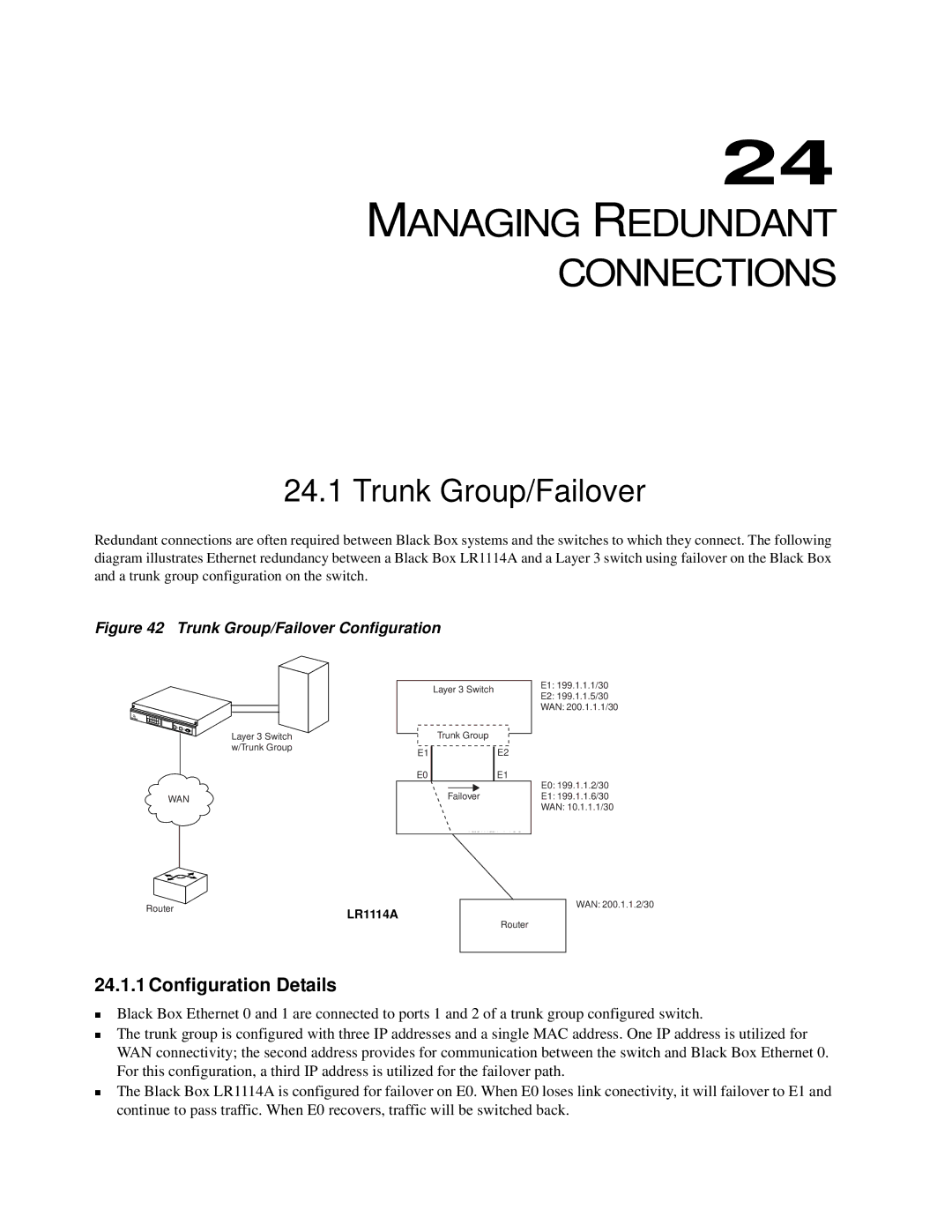
24
MANAGING REDUNDANT
CONNECTIONS
24.1 Trunk Group/Failover
Redundant connections are often required between Black Box systems and the switches to which they connect. The following diagram illustrates Ethernet redundancy between a Black Box LR1114A and a Layer 3 switch using failover on the Black Box and a trunk group configuration on the switch.
Figure 42 Trunk Group/Failover Configuration
Layer 3 Switch w/Trunk Group
WAN
|
| Layer 3 Switch | ||||||
|
|
|
|
|
|
|
|
|
|
| Trunk Group |
|
| ||||
|
|
|
| |||||
|
|
|
|
|
|
|
|
|
E1 |
|
|
|
| E2 | |||
E0 |
|
|
|
| E1 | |||
|
|
|
|
|
|
| ||
|
| Failover | ||||||
|
|
|
|
|
|
|
|
|
|
|
|
|
|
|
|
|
|
|
|
|
|
|
|
|
|
|
E1: 199.1.1.1/30
E2: 199.1.1.5/30
WAN: 200.1.1.1/30
E0: 199.1.1.2/30
E1: 199.1.1.6/30
WAN: 10.1.1.1/30
Router
LR1114A
Router
WAN: 200.1.1.2/30
24.1.1Configuration Details
Black Box Ethernet 0 and 1 are connected to ports 1 and 2 of a trunk group configured switch.
The trunk group is configured with three IP addresses and a single MAC address. One IP address is utilized for WAN connectivity; the second address provides for communication between the switch and Black Box Ethernet 0. For this configuration, a third IP address is utilized for the failover path.
The Black Box LR1114A is configured for failover on E0. When E0 loses link conectivity, it will failover to E1 and continue to pass traffic. When E0 recovers, traffic will be switched back.
